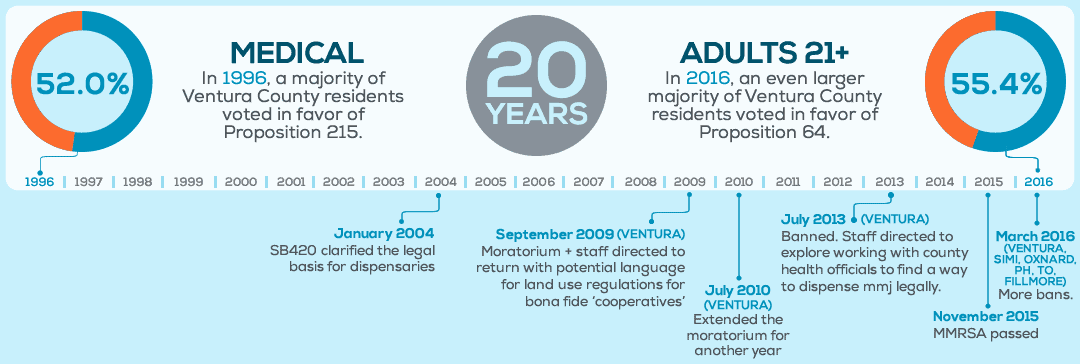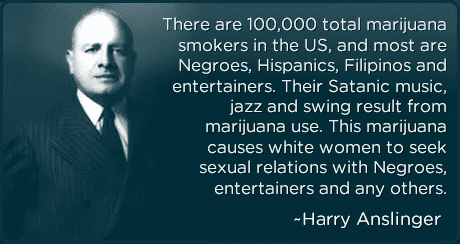When Sespe was founded in 2010, our motto was “Weed for the People”; it was quite fitting in the context of our humble beginnings, operating out of the CEO’s kitchen. It had a bit of a defiant feel to it, almost a battle cry, also appropriate to the atmosphere of the time. Our mission then was to bring safe access to the people of Ventura County, a hostile environment where their needs had been ignored, put off, or outright refused since cannabis first came to California. In those early days the powers that be were still overwhelmingly opposed to our efforts, and we needed to channel our inner revolutionary to get where we are today.

Throughout the years, our mission has not changed; however it has grown, as we have, into a more actualized version of our best selves. Over time, laws and public opinion have shifted, and we have moved beyond the hostility and defiance of the past. Today, when we provide safe access, we do so from a warm, boutique setting with the blessings of our host city and the support of our wonderful vendors, whose offerings are far too refined to be dismissed as merely weed. Cannabis for the populace, perhaps?
The M Word
 On occasion, we may still jokingly refer to the reefer as “weed” but we have always avoided calling it marijuana, for far more serious reasons. In 2015, when the State of California issued its first comprehensive regulatory framework for the industry, it was entitled the Medical Marijuana Regulation and Safety Act (MMRSA). In June 2016, SB 837 was introduced to “among other things, change the name of the Medical Marijuana Regulation and Safety Act, the Bureau of Medical Marijuana Regulation, and the Medical Marijuana Regulation and Safety Act Fund to the Medical Cannabis Regulation and Safety Act, the Bureau of Medical Cannabis Regulation, and the Medical Cannabis Regulation and Safety Act Fund, and … change [all] references to medical marijuana or marijuana to medical cannabis or cannabis, respectively.” What might sound like a bureaucratic technicality was actually a huge step forward, away from the regrettable racist origins of prohibition.
On occasion, we may still jokingly refer to the reefer as “weed” but we have always avoided calling it marijuana, for far more serious reasons. In 2015, when the State of California issued its first comprehensive regulatory framework for the industry, it was entitled the Medical Marijuana Regulation and Safety Act (MMRSA). In June 2016, SB 837 was introduced to “among other things, change the name of the Medical Marijuana Regulation and Safety Act, the Bureau of Medical Marijuana Regulation, and the Medical Marijuana Regulation and Safety Act Fund to the Medical Cannabis Regulation and Safety Act, the Bureau of Medical Cannabis Regulation, and the Medical Cannabis Regulation and Safety Act Fund, and … change [all] references to medical marijuana or marijuana to medical cannabis or cannabis, respectively.” What might sound like a bureaucratic technicality was actually a huge step forward, away from the regrettable racist origins of prohibition.
The propagandists of nearly a century ago chose the exotic-sounding term marijuana (with the spelling alternating between marijuana and marihuana to emphasize its foreign pronunciation) to appeal to the xenophobia that accompanied the surge of immigrants from south of the border during the Mexican Revolution, and to distance it from the commonly known medical substance cannabis, which people were accustomed to seeing in the curative elixirs and tonics of the time. The architect of cannabis prohibition, Harry Anslinger, was an avowed racist who stoked fears of miscegenation with his over-the-top rhetoric: “There are 100,000 total marijuana smokers in the US, and most are Negroes, Hispanics, Filipinos and entertainers. Their Satanic music, jazz and swing result from marijuana use. This marijuana causes white women to seek sexual relations with Negroes, entertainers and any others.” We have made progress since that shameful chapter in our history, but it is important to note that we have not yet put the racism of prohibition behind us. For example, while Alaska’s legalization reduced arrest rates dramatically, blacks are still ten times more likely to be arrested than whites, in spite of having similar rates of cannabis use. For over ten thousand years, every major civilization has has used cannabis; it should unite us, not divide us.
Cannabis culture will always have a rich and imaginative array of colloquialisms to describe its favorite plant, but there is never a reason for marijuana to be among them. Even if we were to eliminate the racial disparities in prohibitionist policing today, the m word is still something we should put behind us once and for all.

Great post! The move away from terms like “marijuana” or “weed” in favor of “cannabis” or “cannabis products” reflects a broader shift in perception, language, and recognition of the plant’s diverse uses and potential benefits. It’s a reflection of changing attitudes, growing awareness, and a desire to destigmatize and normalize cannabis use in various contexts.